 W
WJerzy Andrzejewski was a prolific Polish author. His works confront controversial moral issues such as betrayal, the Jews and Auschwitz in the wartime. His novels, Ashes and Diamonds, and Holy Week, have been made into film adaptations by the Oscar-winning Polish director Andrzej Wajda. Holy Week and Ashes and Diamonds have both been translated into English. His novel The Gates of Paradise was translated into English by James Kirkup and published by Panther Books with the anglicised spelling "George Andrzeyevski".
 W
WMiron Białoszewski, was a Polish poet, novelist, playwright and actor.
 W
WKrzysztof Olaf Charamsa is a Polish Catholic theologian and author. In 2015, after declaring he was homosexual and in a relationship, he was suspended from his position as a Catholic priest and removed from several previous posts in the Roman Curia.
 W
WSylwia Chutnik is a Polish novelist, writer, feminist and social activist.
 W
WJózef Czapski was a Polish artist, author, and critic, as well as an officer of the Polish Army. As a painter, he is notable for his membership in the Kapist movement, which was heavily influenced by Cézanne. Following the Polish Defensive War, he was made a prisoner of war by the Soviets and was among the very few officers to survive the Katyn massacre of 1940. Following the Sikorski-Mayski Agreement, he was an official envoy of the Polish government searching for the missing Polish officers in Russia. After World War II, he remained in exile in the Paris suburb of Maisons-Laffitte, where he was among the founders of Kultura monthly, one of the most influential Polish cultural journals of the 20th century.
 W
WMaria Dąbrowska was a Polish writer, novelist, essayist, journalist and playwright, author of the popular Polish historical novel Noce i dnie written between 1932 and 1934 in four separate volumes. The novel was made into a film by the same title in 1975 by Jerzy Antczak. Dąbrowska was awarded the prestigious Golden Laurel of the Polish Academy of Literature in 1935. She was nominated for the Nobel Prize in Literature five times. She translated Samuel Pepys' Diary into Polish.
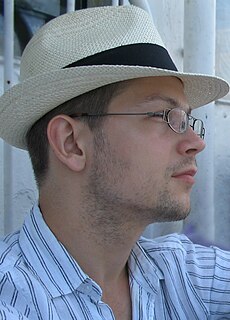 W
WJacek Dehnel is a Polish poet, writer, translator and painter.
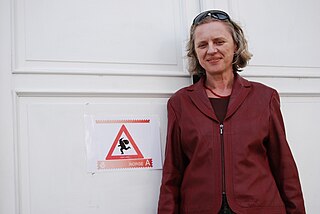 W
WIzabela Filipiak is a Polish writer, an essayist, a columnist, and a scholar.
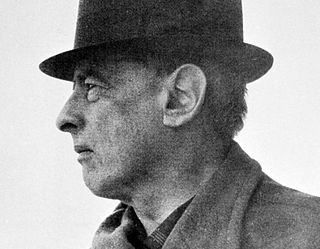 W
WWitold Marian Gombrowicz was a Polish writer and playwright. His works are characterised by deep psychological analysis, a certain sense of paradox and absurd, anti-nationalist flavor. Because he was a leftist, bisexual, and anticlerical who defied all party lines, his books were banned in communist Poland. In 1937 he published his first novel, Ferdydurke, which presented many of his usual themes: problems of immaturity and youth, creation of identity in interactions with others, and an ironic, critical examination of class roles in Polish society and culture. He gained fame only during the last years of his life, but is now considered one of the foremost figures of Polish literature. His diaries were published in 1969 and are, according to the Paris Review, "widely considered his masterpiece". He was a Nobel Prize candidate in Literature in 1966, according to a recently published database.
 W
WPaweł Hertz – polish writer, poet, translator and publisher.
 W
WAnna Iwaszkiewicz, née Lilpop, was a Polish writer and translator, wife of the writer Jarosław Iwaszkiewicz.
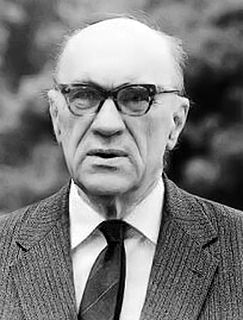 W
WJarosław Leon Iwaszkiewicz, also known under his literary pseudonym Eleuter, was a Polish writer, poet, essayist, dramatist and translator. He is recognized for his literary achievements, beginning with poetry and prose written after World War I. After 1989, he was often presented as a political opportunist during his mature years lived in communist Poland, where he held high offices. He was nominated for the Nobel Prize in Literature four times. In 1988, he was recognized as a Righteous Among the Nations for his role in sheltering Jews during World War II.
 W
WIrena Klepfisz is a Jewish lesbian author, academic and activist.
 W
WAnna Kowalska nee Chrzanowska – was a Polish writer and diarist.
 W
WLeszek Józef Serafinowicz was a Polish poet, literary and theater critic, diplomat, and co-founder of the Skamander literary movement and the Polish Institute of Arts and Sciences of America.
 W
WWilhelm Mach, pen names il., Quidam, s., S., Współpracownik – Polish writer, essayist, poet and literary critic.
 W
WStefan Napierski, actually Stefan Marek Eiger was a Polish poet of Jewish origin, translator and essayist, in the years 1938–1939 publisher of the bimonthly "Ateneum".
 W
WSzymon Niemiec is a Polish photographer, gay rights activist, journalist and politician. He is the founder of the first Polish Gay Pride parade, Parada Równości held in 2001.' From 2000 to 2006, Niemiec held the post of Cultural Ambassador of Poland to the International Lesbian and Gay Culture Network. From 2001 to 2005, he was President of the International Lesbian and Gay Culture Association in Poland.
 W
WMaria Rodziewiczówna was a Polish writer, among the most famous of the interwar years. Her works often addressed patriotism, idealized rural life, and praised the countryside and peasantry. Rodziewiczówna is also noted for advocating for women's rights. Her writings include "Wrzos" ("Heather"), "Dewajtis", "Lato leśnych ludzi", "Straszny dziadunio".
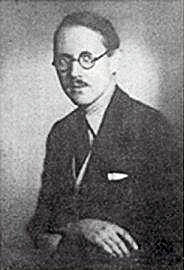 W
WAntoni Marian Henryk Sobański was a Polish journalist, writer and socialite. He is mainly associated with Wiadomości Literackie and the liberal artistic bohemia of the Polish interwar period, including Skamander. He worked for both The Times and the BBC.
 W
WJulian Stryjkowski was a Polish journalist and writer, notable for his social prose of radical leftist leanings. He was considered one of the best Polish-Jewish writers of the communist era.
 W
WMarcin Szczygielski is a Polish writer, journalist and graphic designer. He is an author of theatrical plays, novels for adults and for teenagers. Since December 2012 he has been a member of Stowarzyszenie Pisarzy Polskich.
 W
WJerzy Waldorff-Preyss of the Nabram coat of arms was a Polish media personality, public intellectual, socialite, music critic and a music aficionado. He wrote over twenty books, mostly on the subject of classical music and society. Waldorff is known as "the last baron of the Polish People's Republic".
 W
WMichał Witkowski is a Polish novelist.
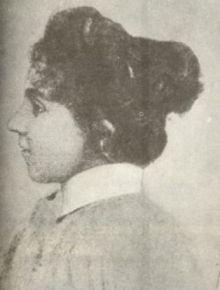 W
WPiotr Odmieniec Włast, Maria Jakubina Komornicka was a Polish writer of Young Poland period, translator and literary critic. Włast never denied nor rejected male identity, in contrast to the female one.
 W
WJerzy Zawieyski, born Henryk Nowicki, was a Polish playwright, prose writer, Catholic political activist and amateur stage actor. He wrote psychological, social, moral and historical novels, dramas, stories, essays and journals.
 W
WNarcyza Żmichowska pronounced [narˈt͡sɨza ʐmʲiˈxɔfska], also known under her popular nom de plume Gabryella, was a Polish novelist and poet. She is considered a precursor of feminism in Poland.